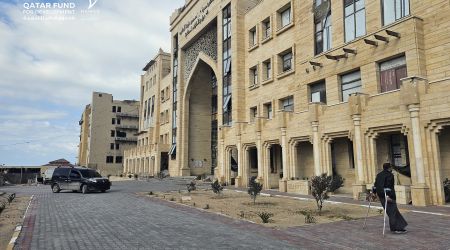
“After hearing from over 16,000 displaced families in the Gaza Strip, it is clear that most continue to live in desperate conditions,” said Robert Piper, UN Coordinator for Humanitarian Aid and Development Activities. “International support to end this situation is urgently needed.”
According to the survey, over 80 per cent of families borrowed money to get by in the past year, over 85 per cent purchased most of their food on credit, and over 40 per cent have decreased their consumption of food. Most IDP households (62.5 per cent) reported that they are renting living space, including from extended family members, and nearly 50 per cent fear being evicted from their accommodation. The situation of women and girls is of particular concern. Many families report living in shelter conditions that are lacking in safety, dignity and privacy, including living in tents, makeshift shelters, destroyed houses, or the open air. These needs come in the context of prolonged occupation, including the eight-year-long Israeli blockade and three outbreaks of hostilities since 2008.
“Funding is needed more than ever. We face a funding gap to reconstruct some 6,600 houses, or about 37 per cent of the overall caseload. Without this support, thousands of Palestinians will see no end to their displacement,” said Mr. Piper. “But this support must go hand in hand with significant changes at the policy-level, including a lifting of the blockade and progress towards Palestinian reconciliation. Without such action, coping capacities of exhausted and vulnerable households risk being depleted altogether,” he concluded.

